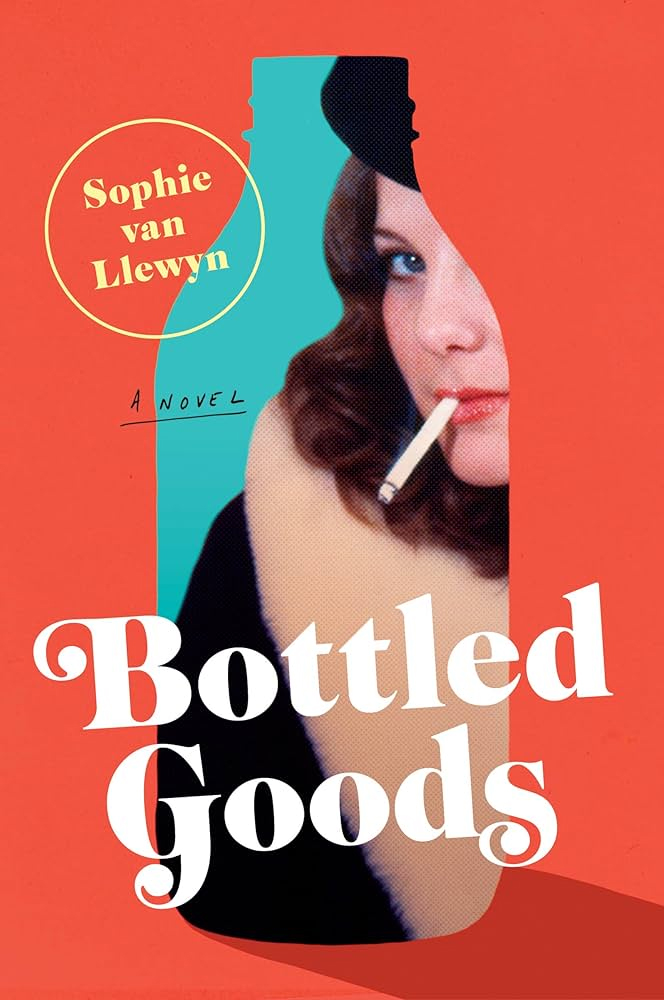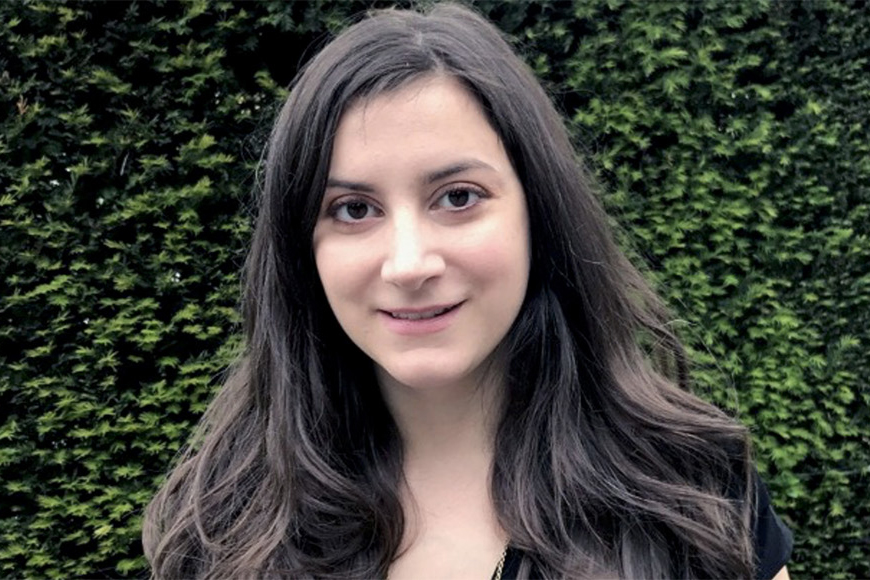From the Women’s Prize Archives.
Sophie van Llewyn has been longlisted for the 2019 Women’s Prize for Fiction for her novel Bottled Goods. We caught up with Sophie to chat about flash fiction, the reverberations of communism in her Romanian childhood and how it feels to have her debut longlisted for the Women’s Prize.
How does it feel to have your debut longlisted for the Women’s Prize for Fiction?
Surreal! It has been a huge, unexpected gift for me and my book. Imagine this: I wrote a book about communist Romania in an usual form, published by a small, new house. I never expected to reach this kind of audience I’m reaching now, after the longlisting. Reviews are pouring in, and I read them hungrily every day. It’s so uplifting to see that my book is touching readers, and that most of them are genuinely interested in the Romania of the 1970s and its people. As an immigrant, I had to fight so many prejudices against Romanians. It’s so nice to see that perhaps I’m able, through this book, to shed a bit of light on my native country and its people. My publisher, Fairlight Books, and the Women’s Prize for Fiction have offered me this springboard — and I cherish this every day, and the attention my book is enjoying since the longlisting.
Can you tell us about the inspiration behind your novel?
Bottled Goods started in a generative flash fiction workshop as a single scene that took place at the Border of the Communist Republic of Romania in the 1970s. I saw this woman, Alina, hungry and scared after having been searched for more than twenty-four hours, hiding something tiny and very precious in her purse. I was inspired to write this scene by a story some family friends once told us: how they wanted to go for a short vacation in the West in the 1970s, and how they were detained for hours on end at the Border, while their car was taken apart. When Border Security finally let them go, the authorities were convinced they wouldn’t return. Even though their teenage son had been left behind, with his grandmother. Of course the couple returned, but this kind of excessive distrust, this control exercised frantically and mercilessly made a deep impression on me.

What kind of research did you do to enable you to write so compellingly about the Cold War’s shortages and propaganda, plus the realities of Romanian family life at that time?
I grew up in Romania — I first left the country for Germany eight years ago, when I finished medical school. In Romania, communism is a mythical creature: hated, reviled, missed and regretted in equal parts. In any case, it’s still part of many conversations, whether they refer to memories from my parents’ and grandparents’ youth, or to the current political situation (and I promise you, most of the pensioners who go to bed hungry, or are unable to afford the necessary medication are extremely nostalgic about the old regime). So I grew up acutely aware of the realities of communism. Everybody had their communism stories. And the reverberations of that era were still strong when I was a small child, in the atmosphere in the classroom, for instance (like the fact that in 1995 elementary school pupils still had to wear the traditional communist uniforms in ink blue: a pinafore for the girls on top of a long, checkered chemise; a hideous pompon shaped like a rose, half the size of my head, in my hair).
I was carrying all these memories with me — many more than I’d ever thought them to be — and when I started writing Bottled Goods they seeped into the page.
Why did you choose to write your novel as a collection of 51 tapestry-like short pieces?
I could say I didn’t choose the form with Bottled Goods, but the book chose its own shape. I started with that scene at the Border, and ramifications started growing from there. I had a complex story in mind, all the answers to the Whys? and the Hows? that brought Alina there. I tried to write it down. The plot couldn’t be contained within a single flash fiction or a short story. I tried to write the book as a traditional novel, but the plot lost its immediacy and Romania seemed unauthentic when I tried to overexplain it.
At about that time, the Bath Flash Fiction Award had launched their novella-in-flash award. I looked into the form and read several novellas-in-flash, and loved its flexibility and its freshness, and how it was a new genre that still allowed for innovation. So I tried to write Bottled Goods as a novel/novella-in-flash, and something clicked instantly. I began writing frantically, flash fiction after flash fiction. I started seeing the book as a mosaic, and began wondering what kind of colourful, odd pieces I could possibly add to it. I asked myself, what else beside a traditional story could carry a tiny story within? I found the answer in letters to Father Christmas, tables, commented quotes, timetables, postcards, and I added all these quirky forms to the book.
It goes without saying that Bottled Goods was immensely fun to write — and I really hope that shows!
Bottled Goods has many magical realist elements, why did you choose to weave these into the story, rather than telling it in a straight, realist style?
It wasn’t a conscious decision, I didn’t sit down at my computer telling myself ‘I want to write magical realism.’ Folklore, superstitions, popular beliefs are a very important part of Romanian culture and day-to-day life. You can say that they even shape the daily existence, and I’m not only talking about going out of the way of a black cat, or avoiding to pass under a ladder. There are many traditions and rituals related to important events such as weddings, the birth of a child, or funerals, and there’s always the grandmother or an aunt (or three or five) who insist that these rituals should be kept… or else.
So it felt very natural to weave elements of Romanian folklore into Bottled Goods. Once you step onto Romanian territory, the existence of Sânziene or strigoi might not seem as fantastic as it may appear from Germany, or France. These are creatures that people tend to believe in or even fear — like people believe in the existence of changelings in some parts of the UK and Ireland.
What are you working on now?
I’ve put the finishing touches on my next novel. It’s set at Bletchley Park during WW2 and it focuses on a group of women with very different backgrounds (a girl who grew up on a farmhouse, a baronet’s daughter, a German Jew) who are trained to become codebreakers. These young women learn to find their own footing in a patriarchal society and challenge the mentalities of their own time, while they discover the power of sisterhood and female friendship. I’m quite excited about this — I adore historical fiction, and this was such an empowering and fun book to write.








